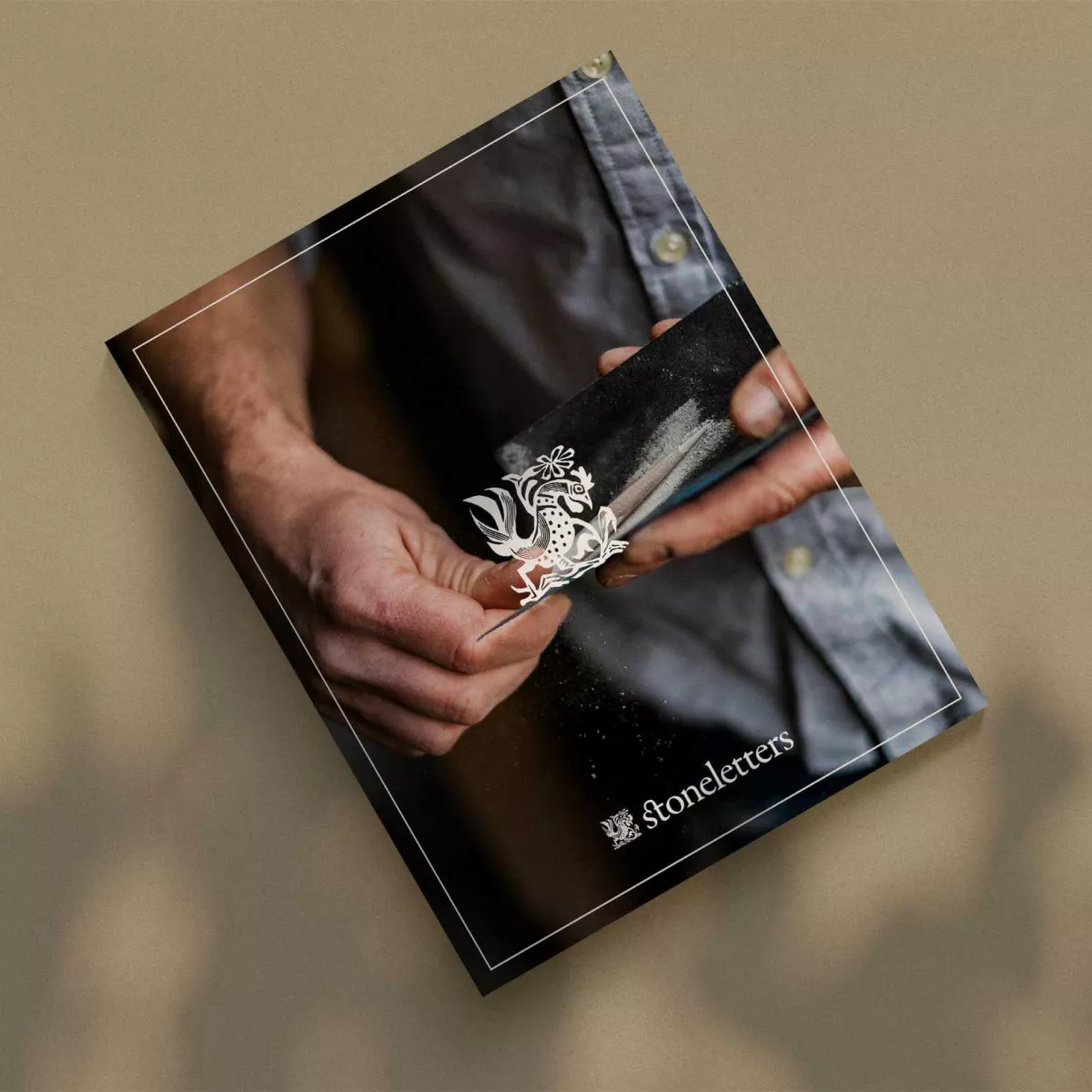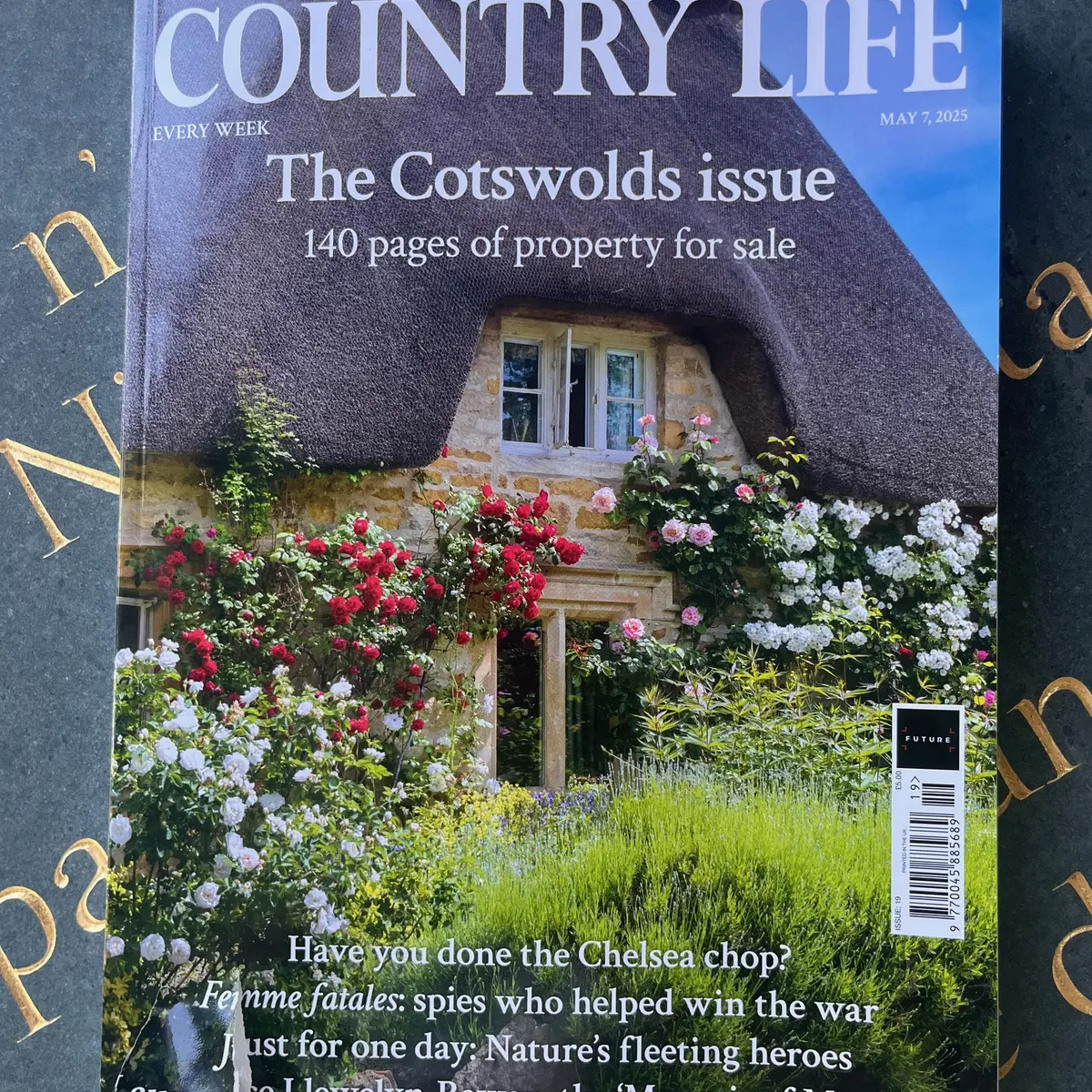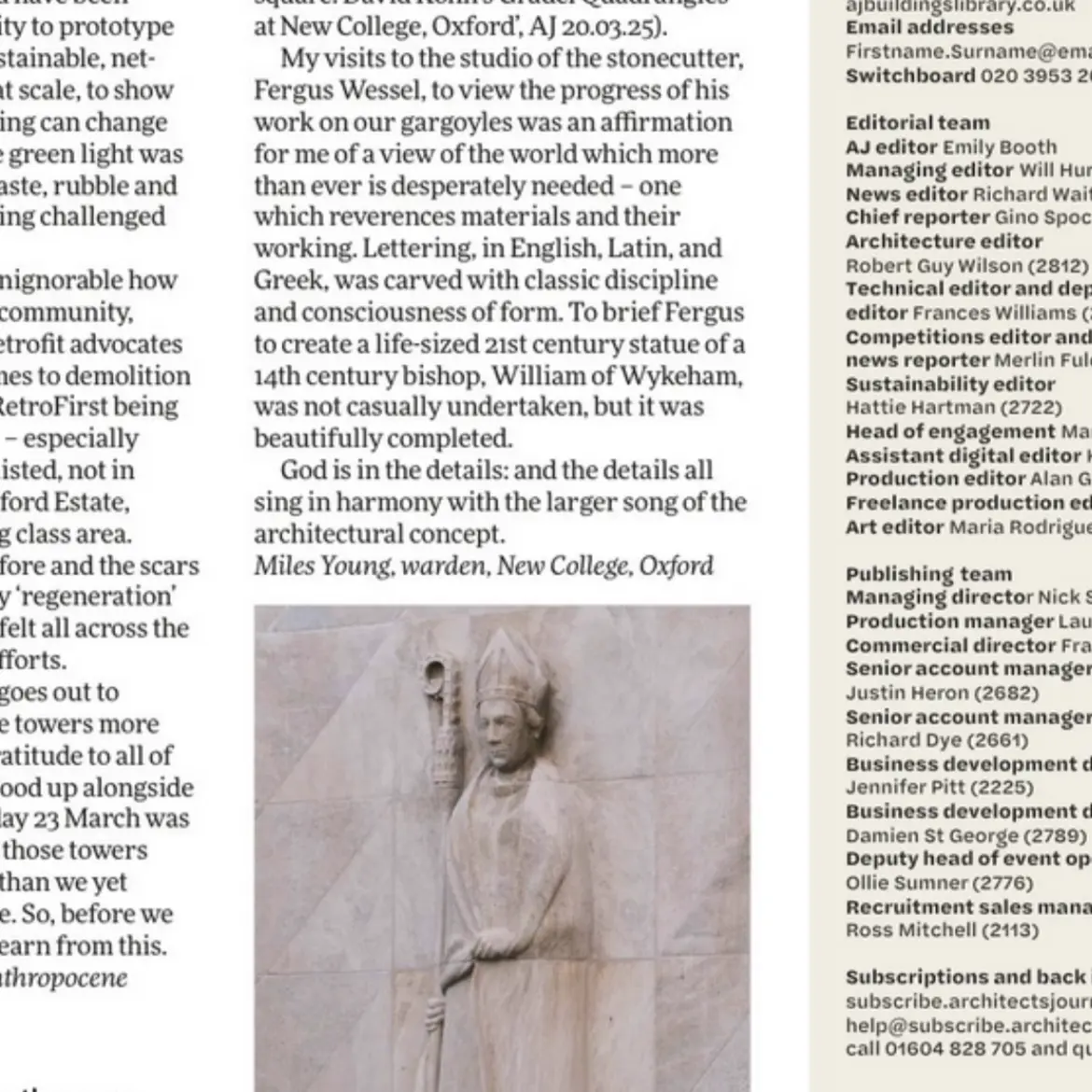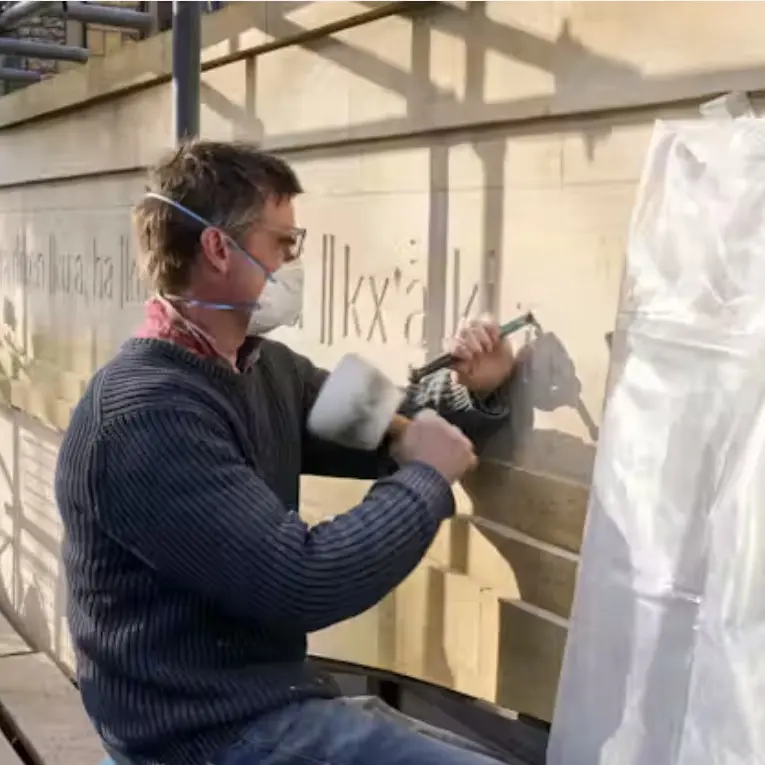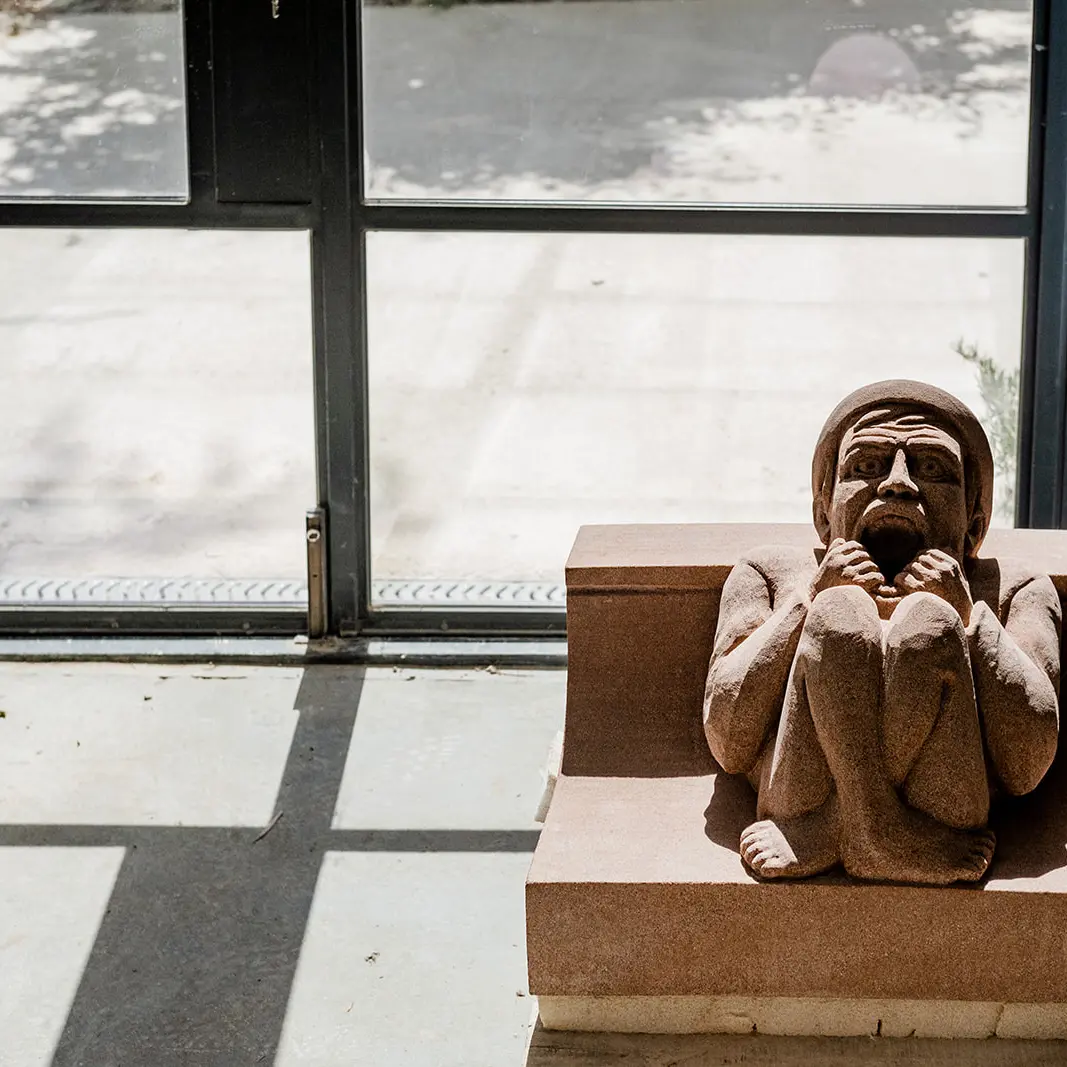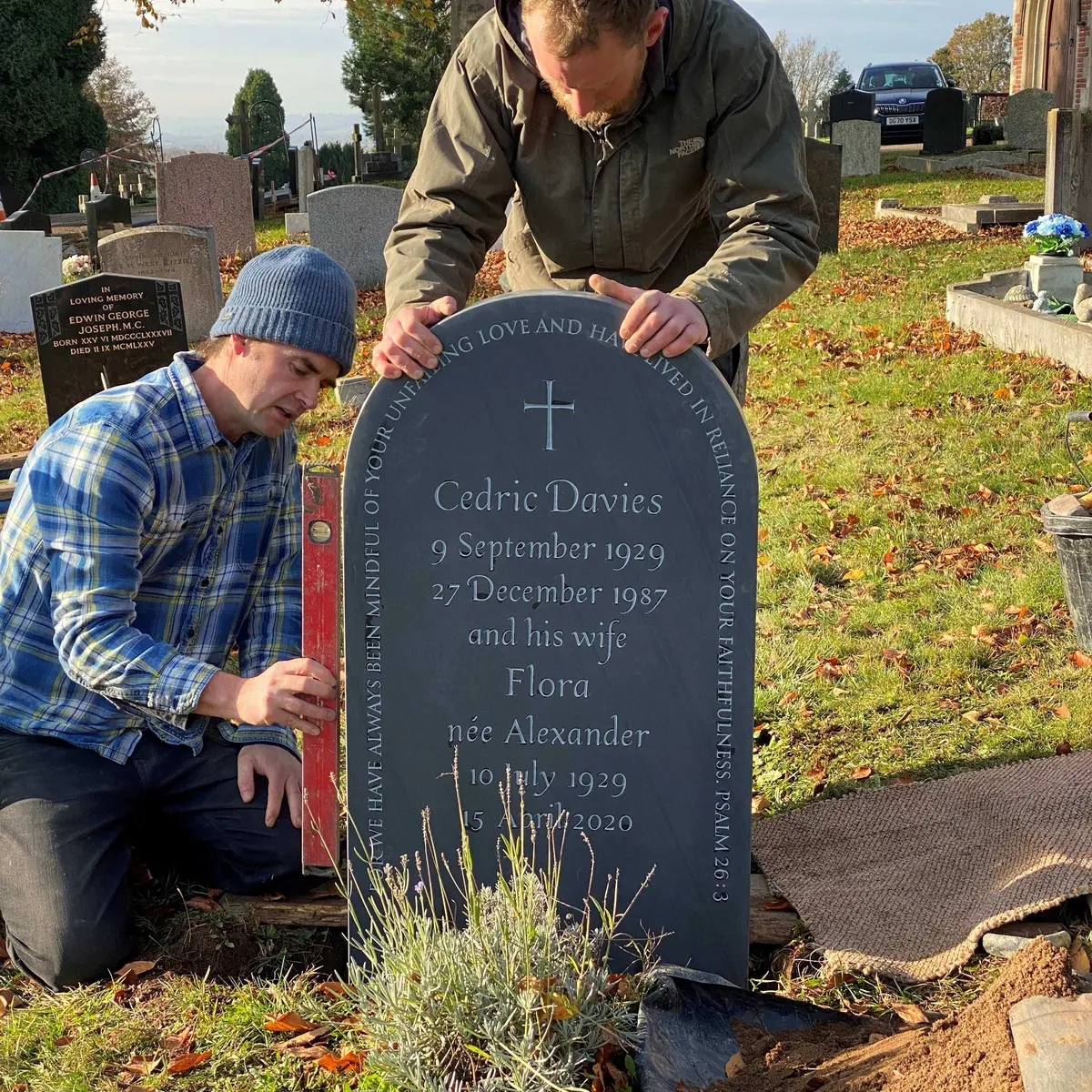By using this website, you agree to our privacy policy
×Contents
Gravestone symbols- the tree
Trees are a popular choice for carving onto a headstone, and for good reason. The tree has long been a symbol of sturdiness, balance and strength. Here are some ideas and inspiration for incorporating a tree on a headstone.
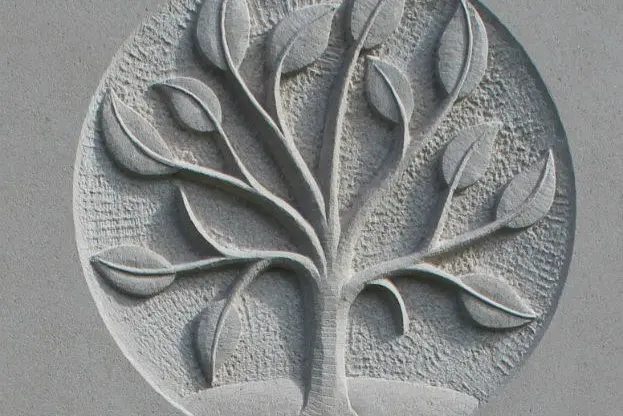
Maple
The tree as a symbol on a headstone
The tree is one of the most popular symbols we carve on headstones and for good reason. We often use a generic carving of a tree rather than a specific tree. It is important that the carving is strong and stylised so that it ages well and is easy to see. The Oak is a popular gravestone symbol, as is the Apple tree. Sometimes we carve a whole tree, but quite often I only carve a few branches or sometimes just some leaves.
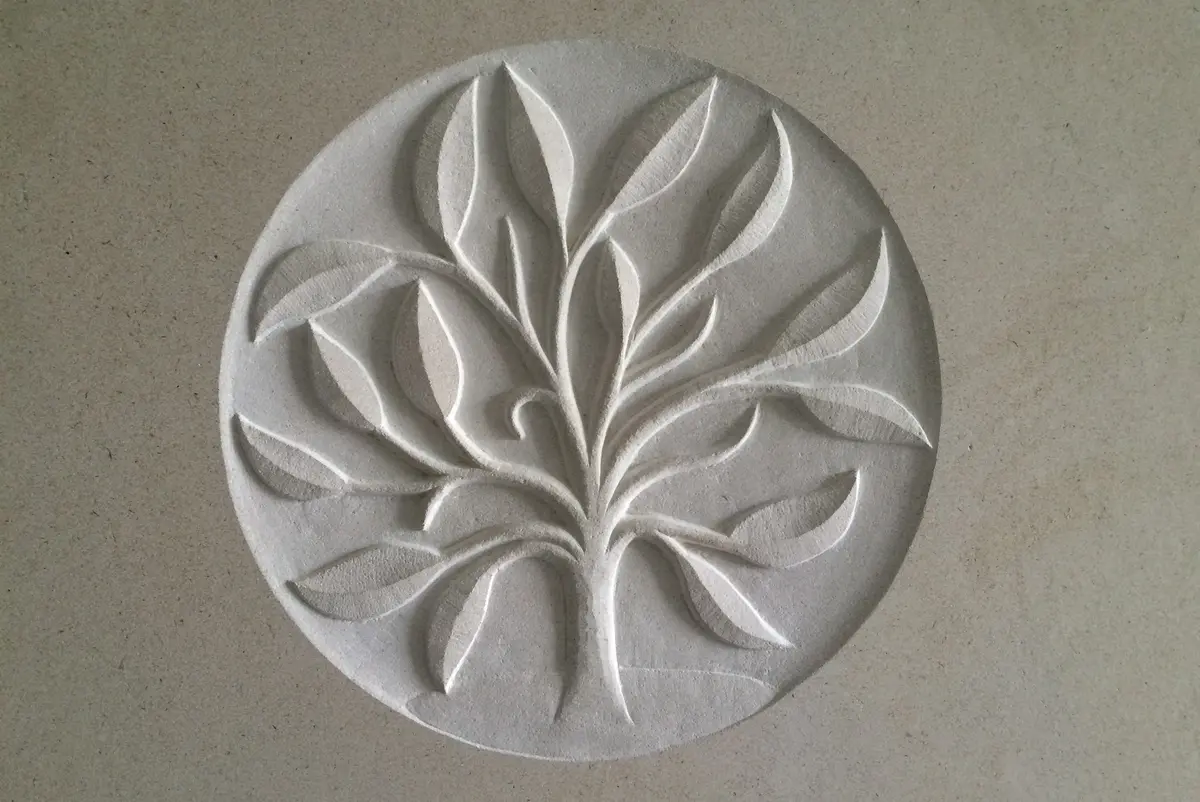
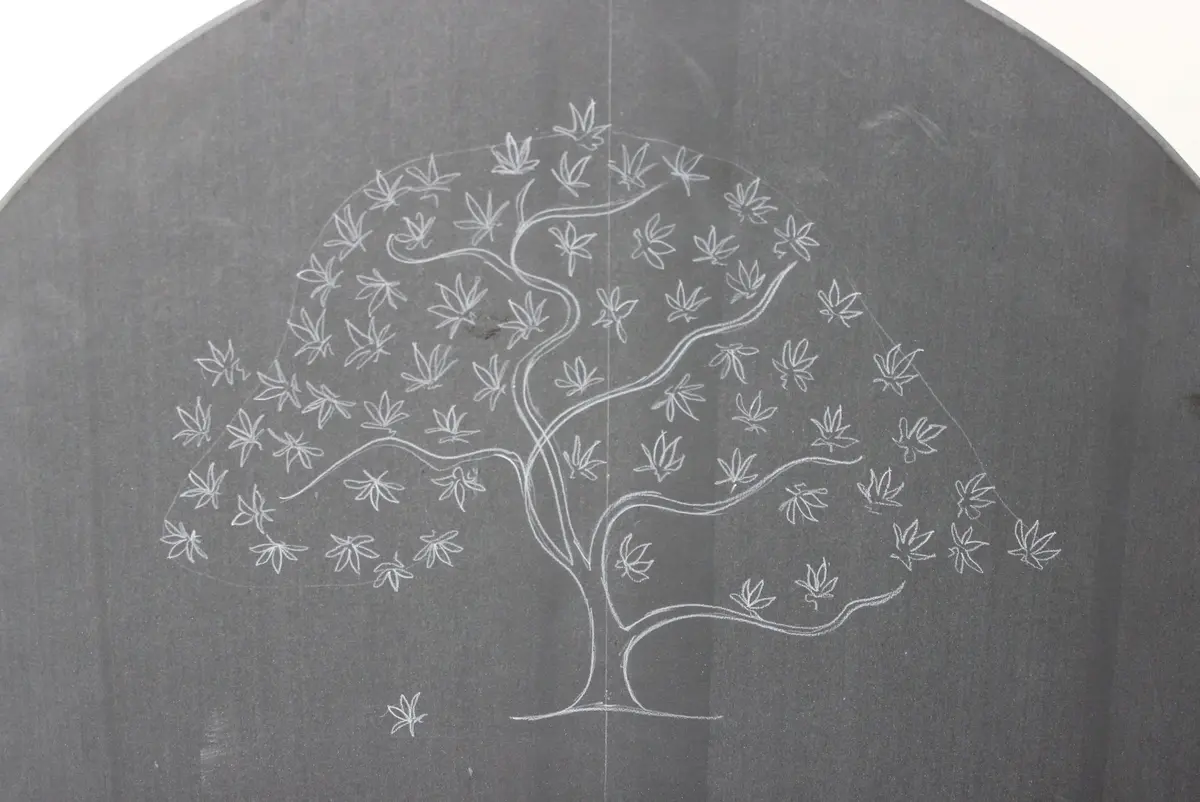
Morris
Oak Tree Symbol
The mighty Oak which can live up to 1000 years, has long evoked what is solid and eternal, once the most widely worshipped of trees. It has been used in countless rituals associated with the cyclical seasons of birth and death. The Oak represents invincible strength, spreading its mighty branches outward from tiny beginnings in an acorn, bearing new fruit as it grows.
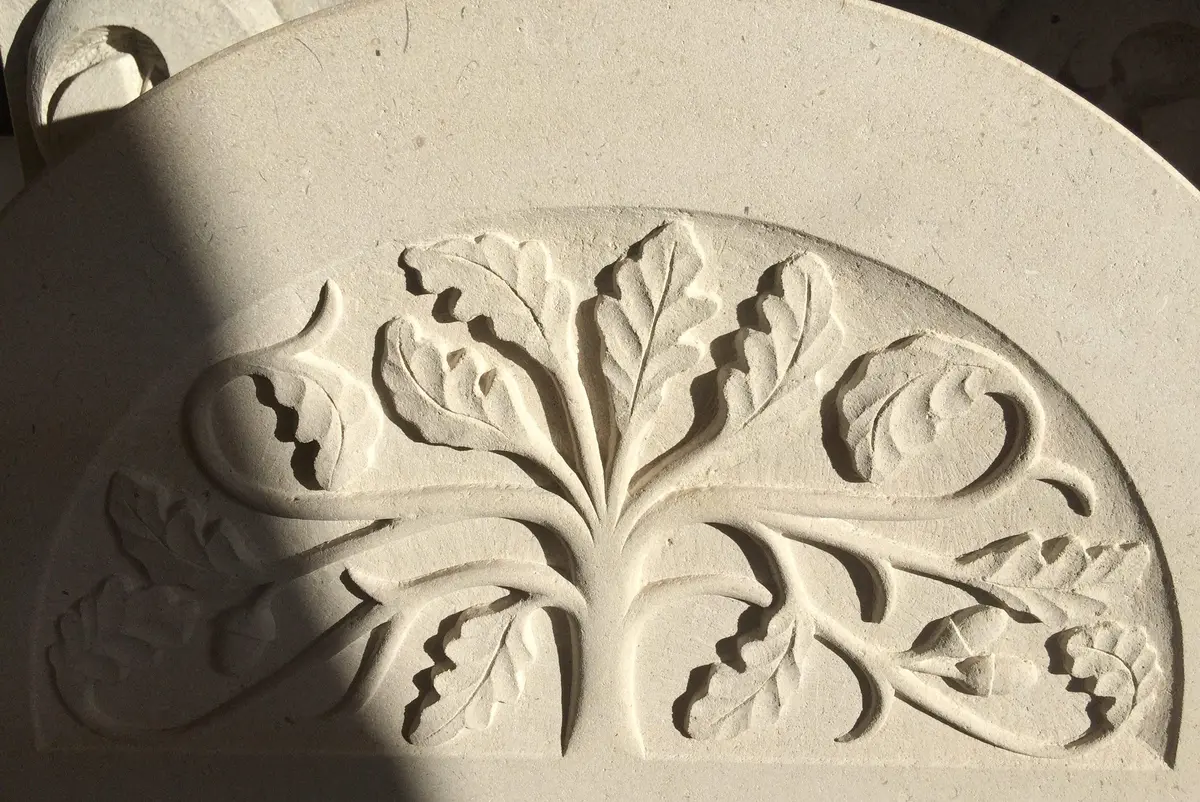
Carving a tree on a headstone
When carving a tree on a headstone there is a choice of how to incorporate the carving. We usually use sunken relief, where the background is taken away to leave the tree proud. The background itself can then be smooth or textured. Another option is to use a line carving, which works best in slate which takes fine detail.
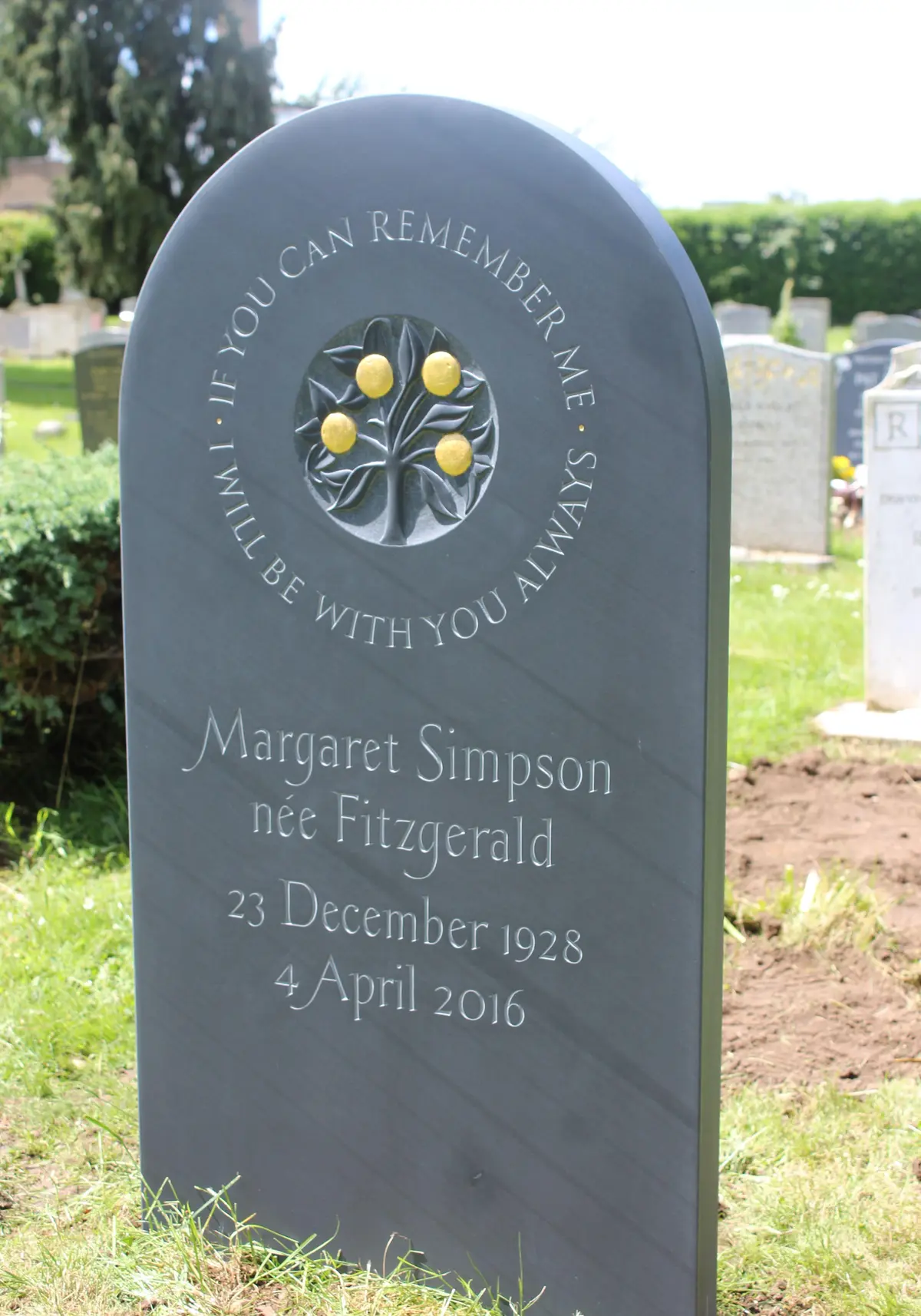
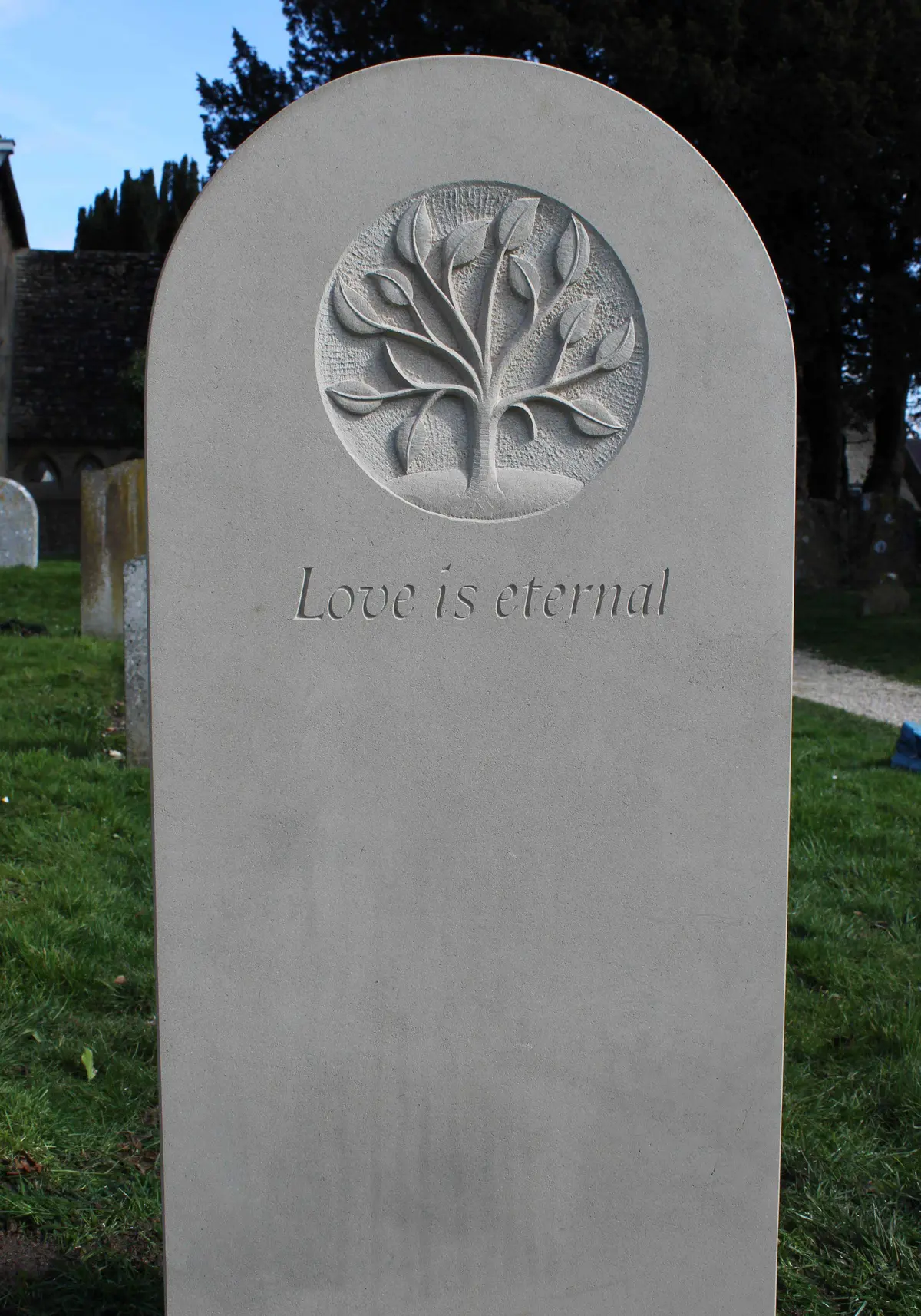
Embellishing the carving
If we carve a limestone such as Portland we never incorporate any paint but if the tree is carved into slate there is an option to paint the carving with a light wash of paint to mimic the natural cut surface. This makes the carving more visible when the headstone gets wet. Sometimes we are asked to gild part of the carving such as a piece of fruit, or as in the carving below, we gilded the entire tree with platinum leaf.
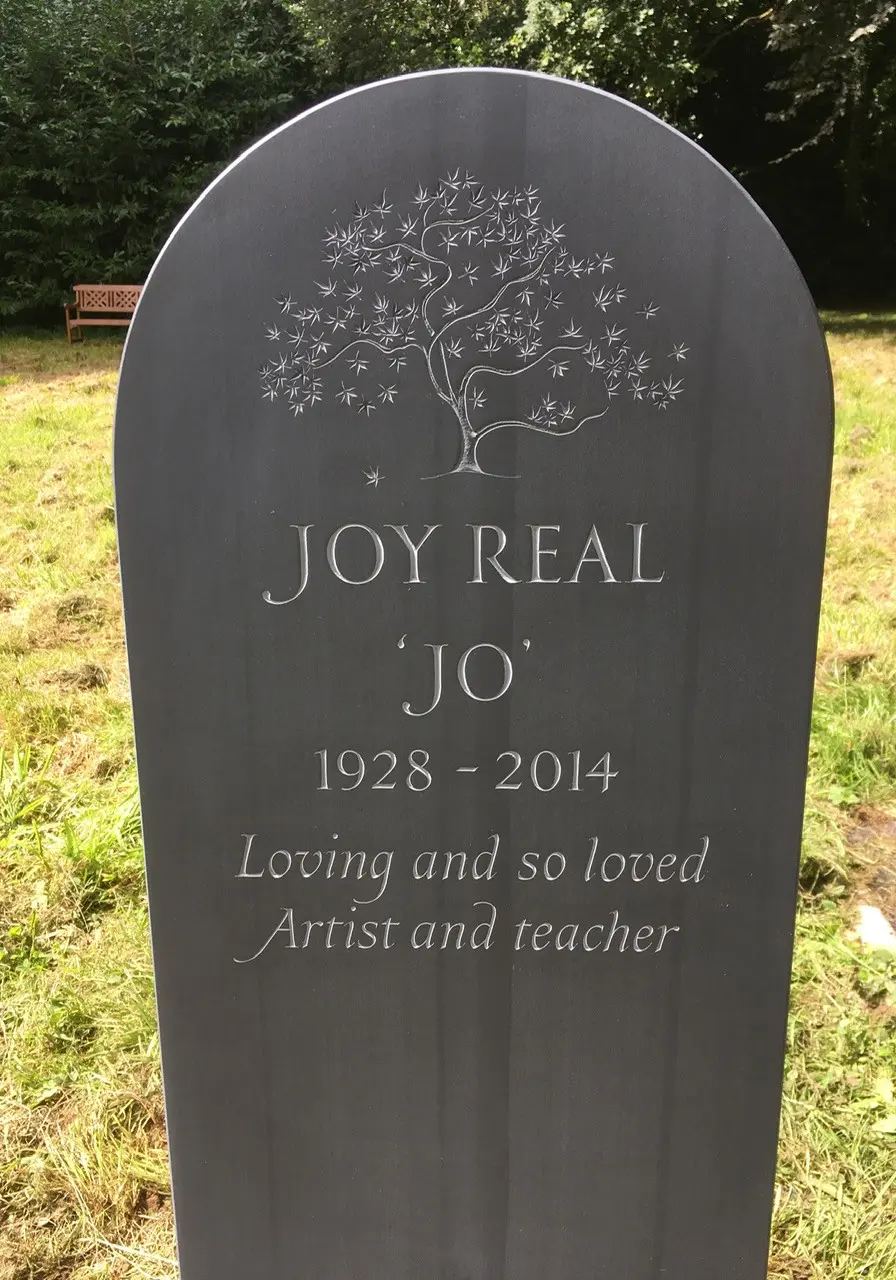
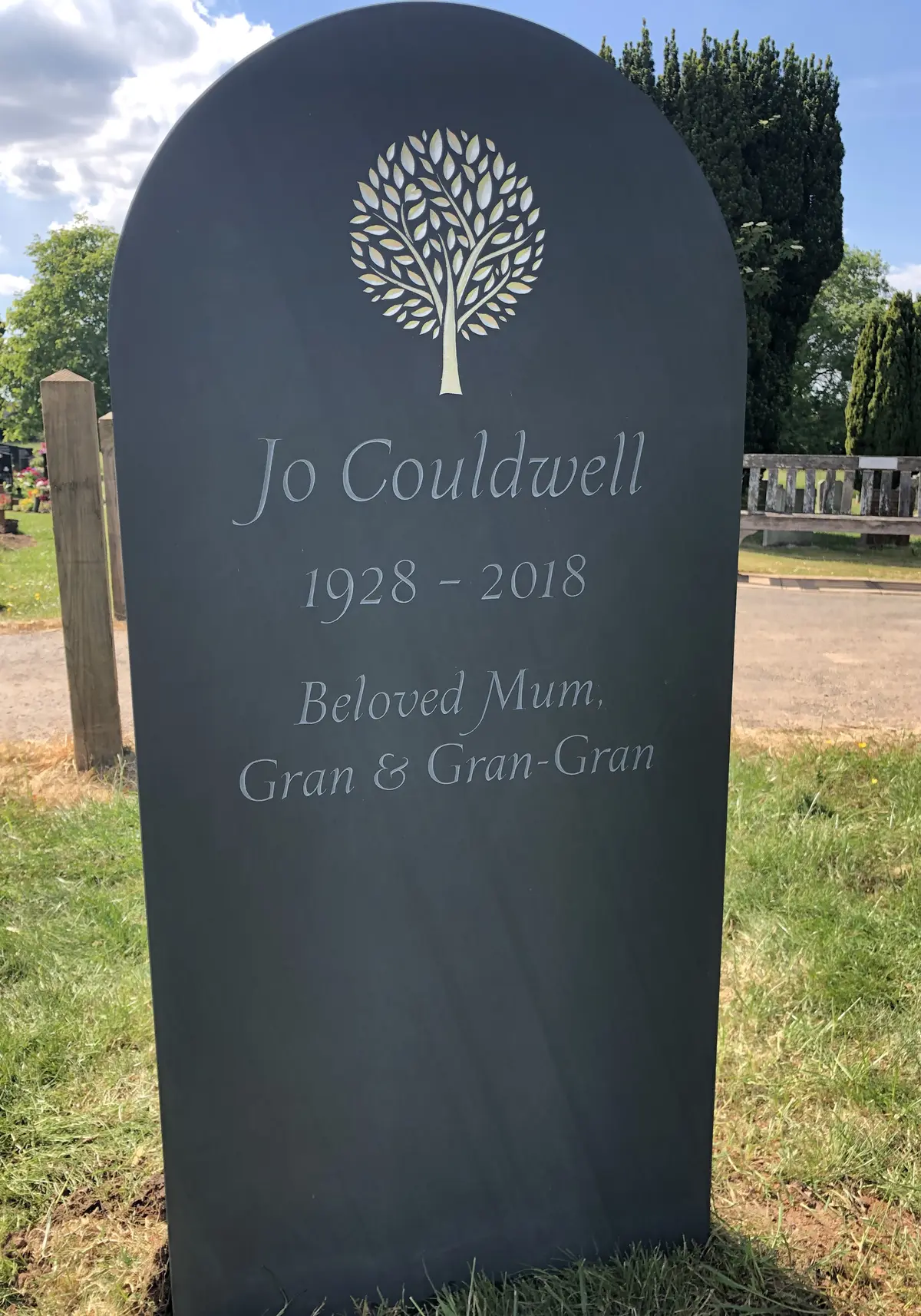
How big should the carving be?
The size of the carving will be determined by the size of the gravestone, the length of the inscription, and the prominence you want the carving to have. Church of England regulations stipulate that a carving should not occupy more than a third of the headstone surface, which means that if you wanted a large carving such as the one below, you would need to get a special faculty from the Chancellor. It would be unlikely to be granted in a churchyard. Cemeteries have their own rules and tend to be more lenient.
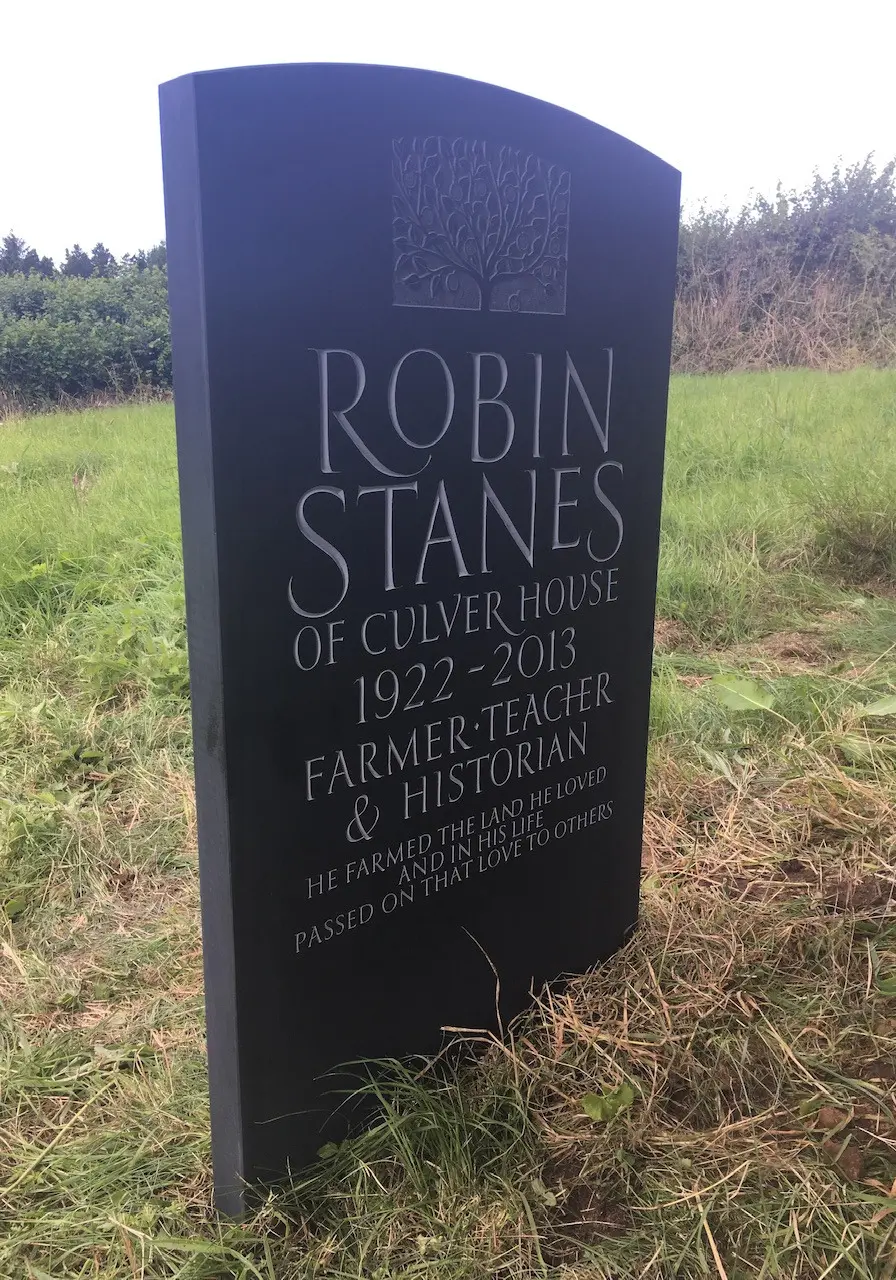
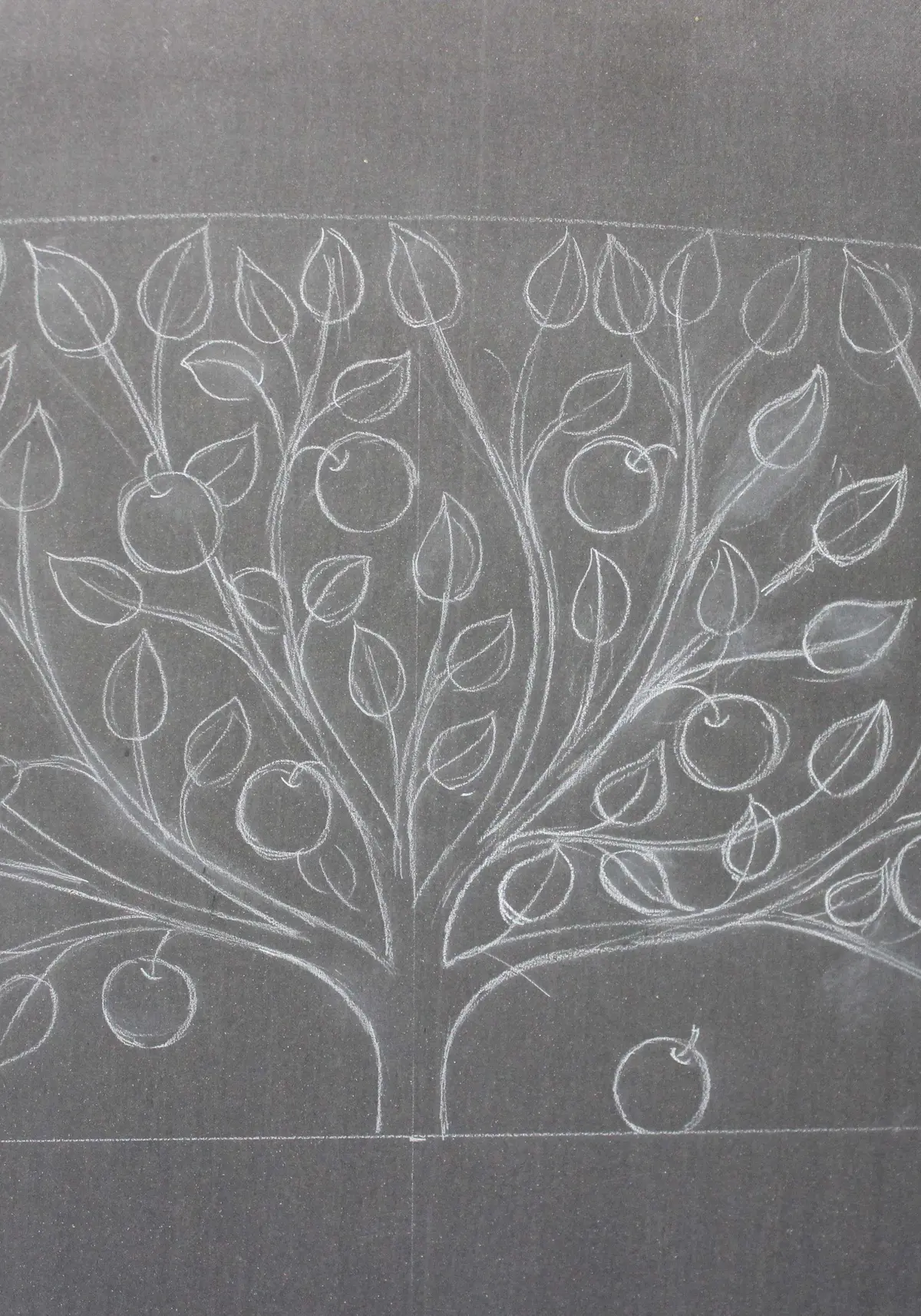
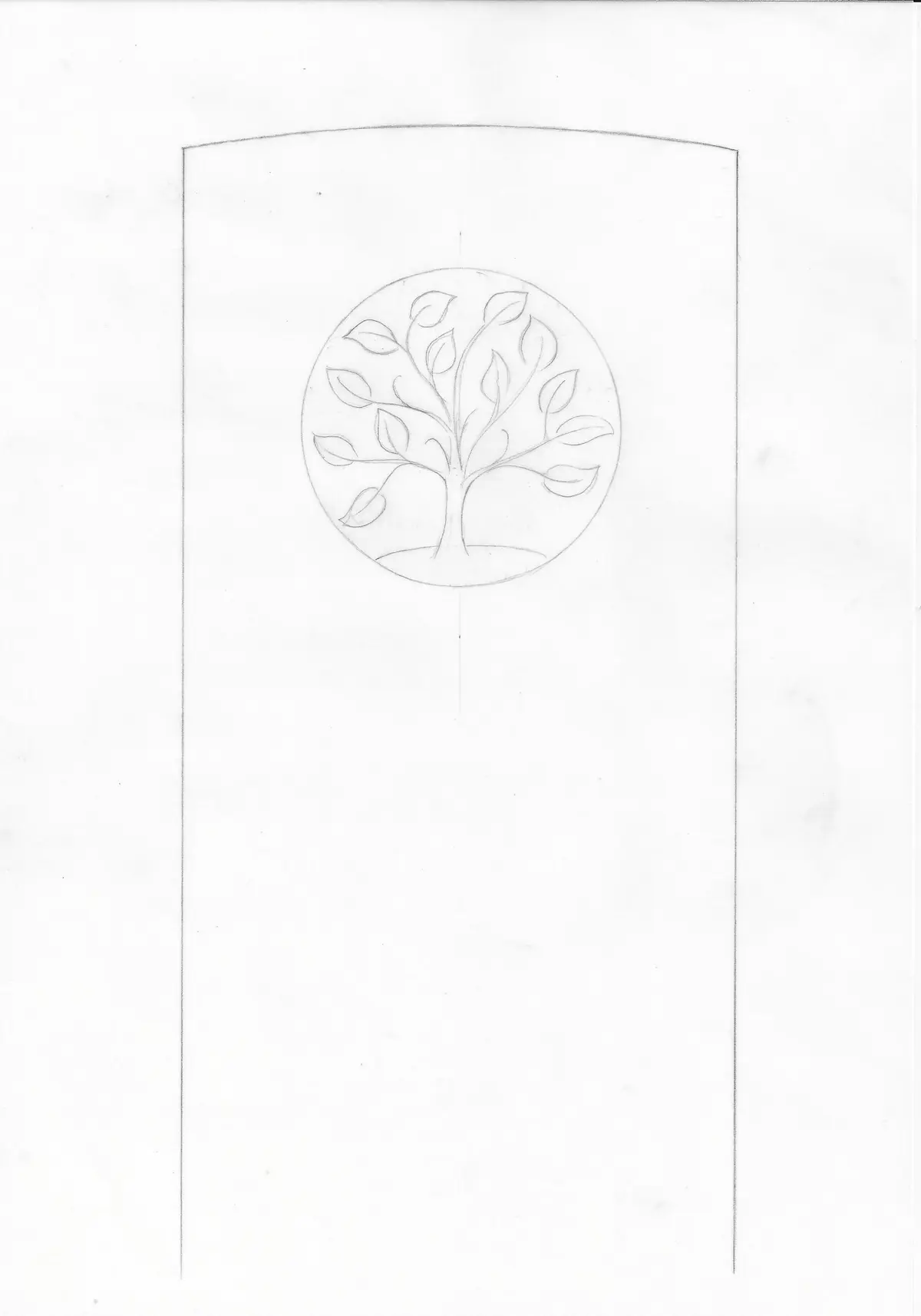
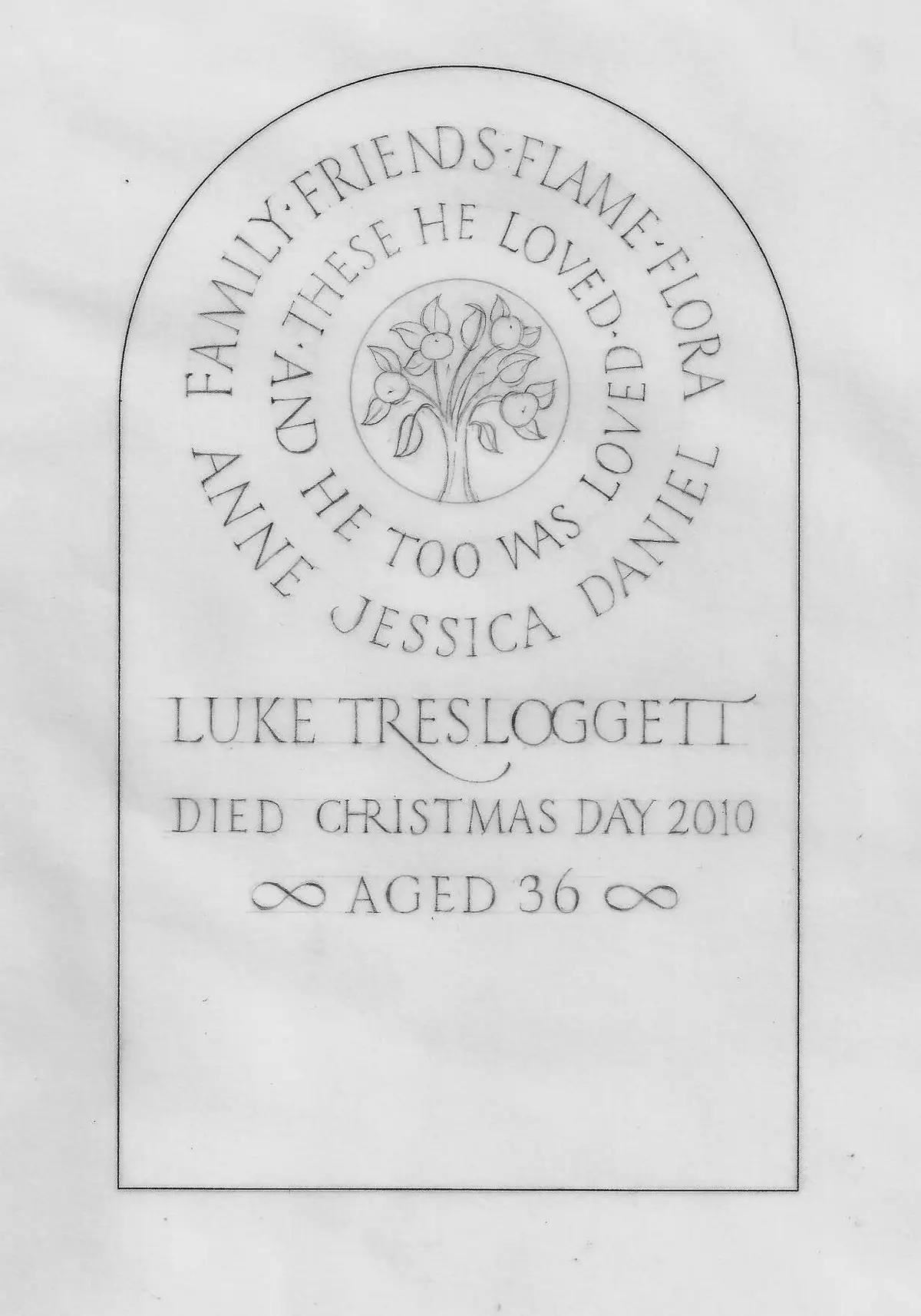
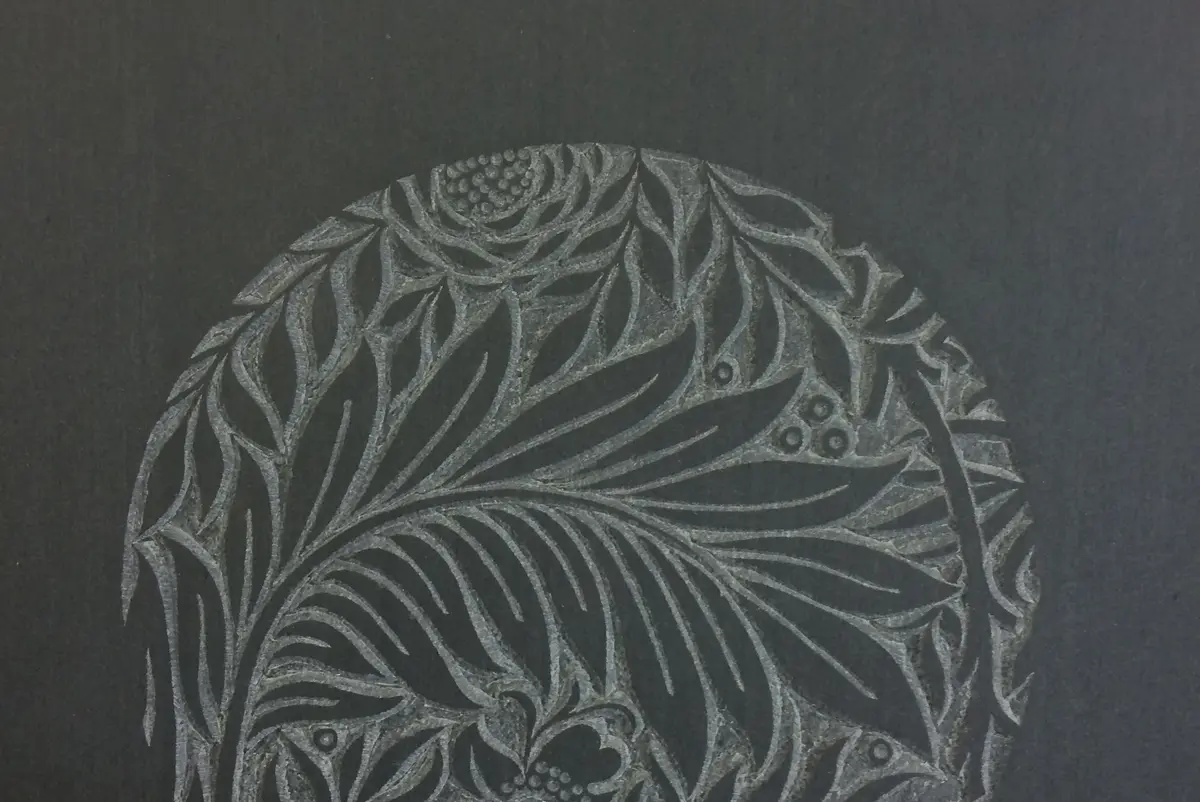
Using the back and top of a headstone
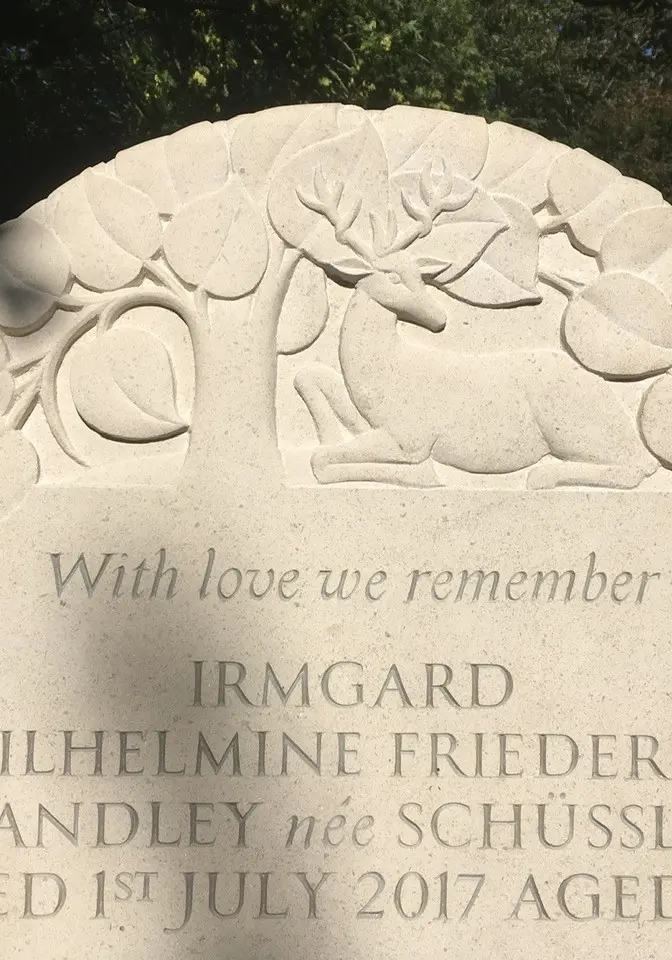
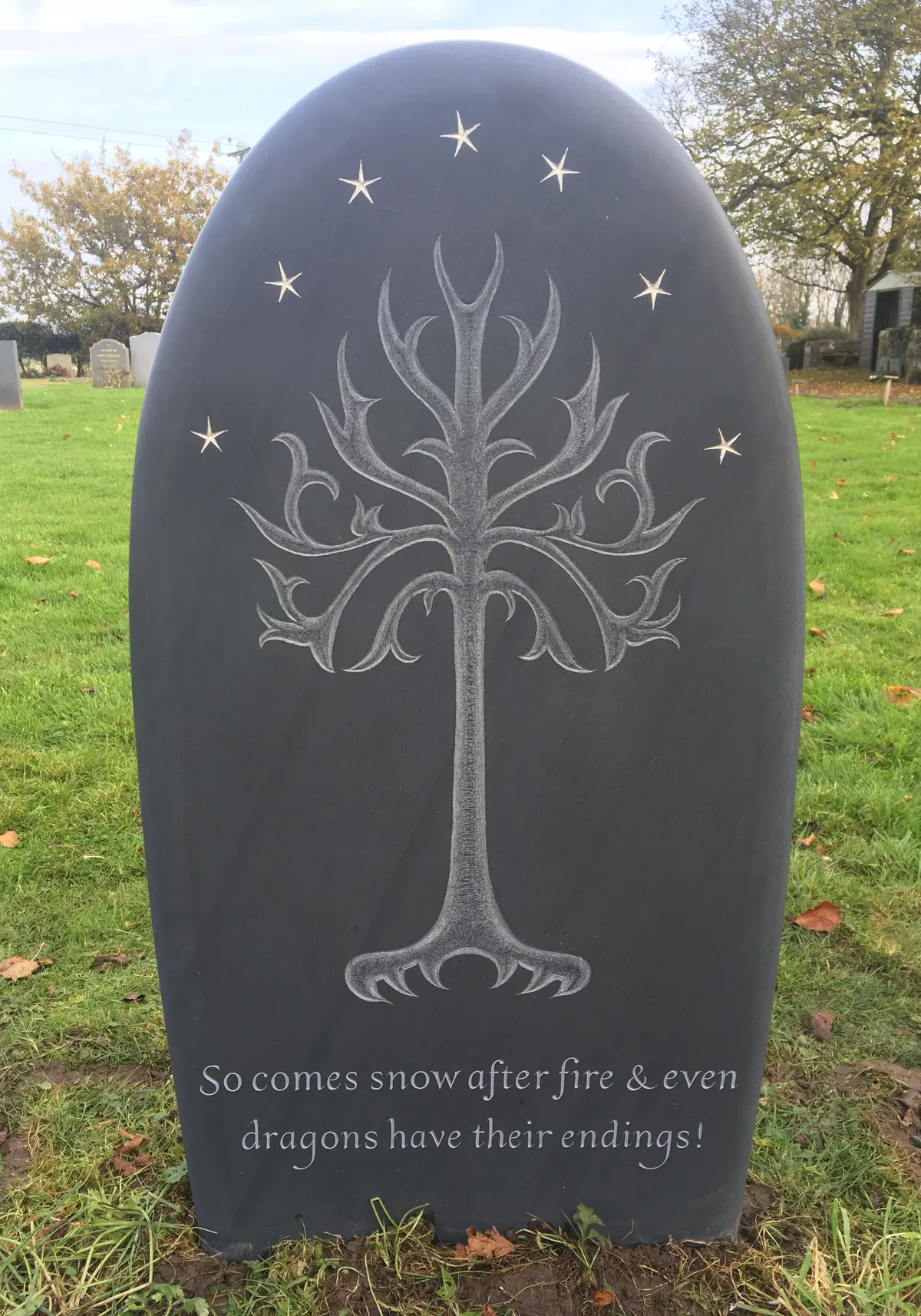
This gravestone above left has an intricate carving of a stag seated beneath a lime tree.
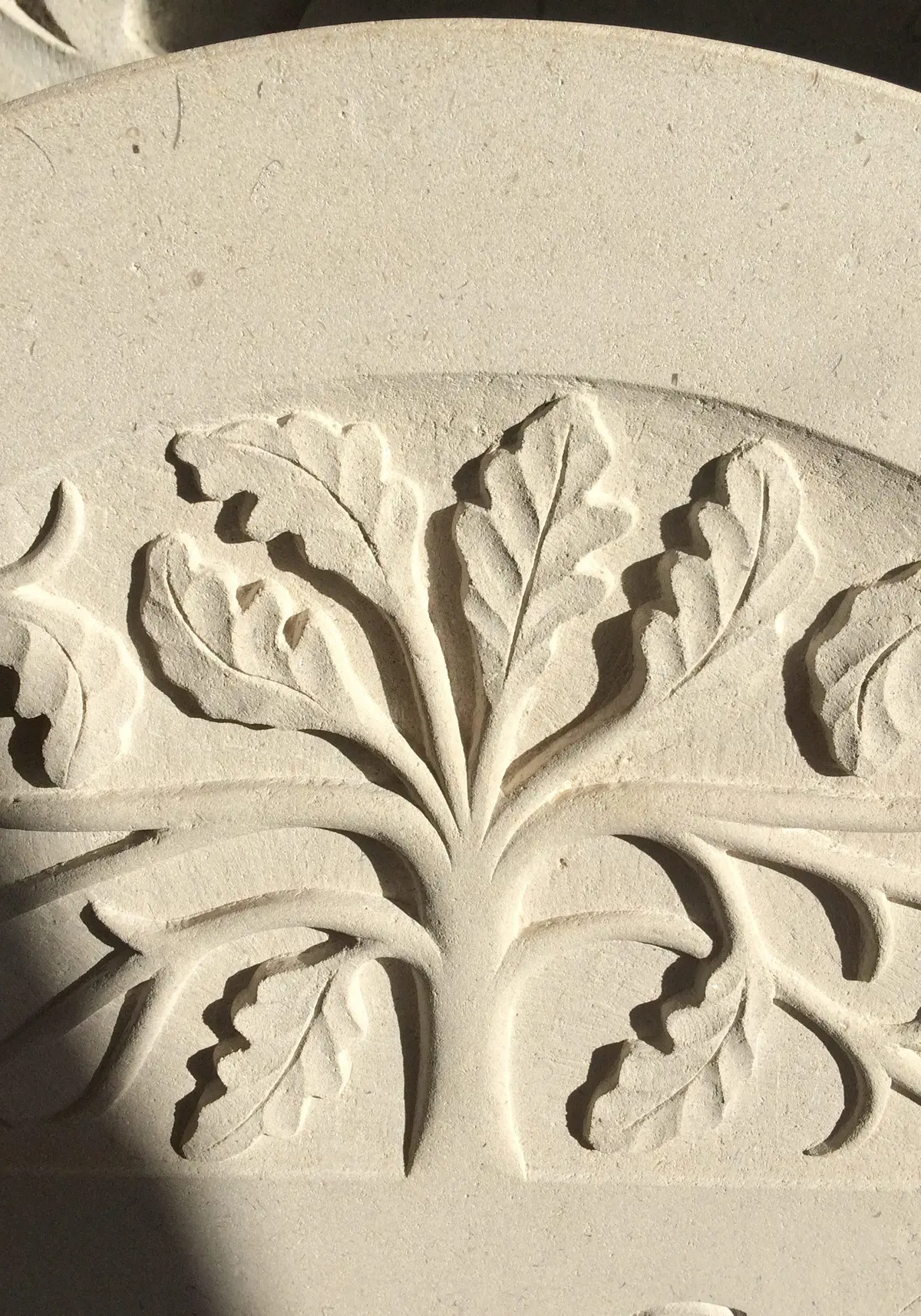
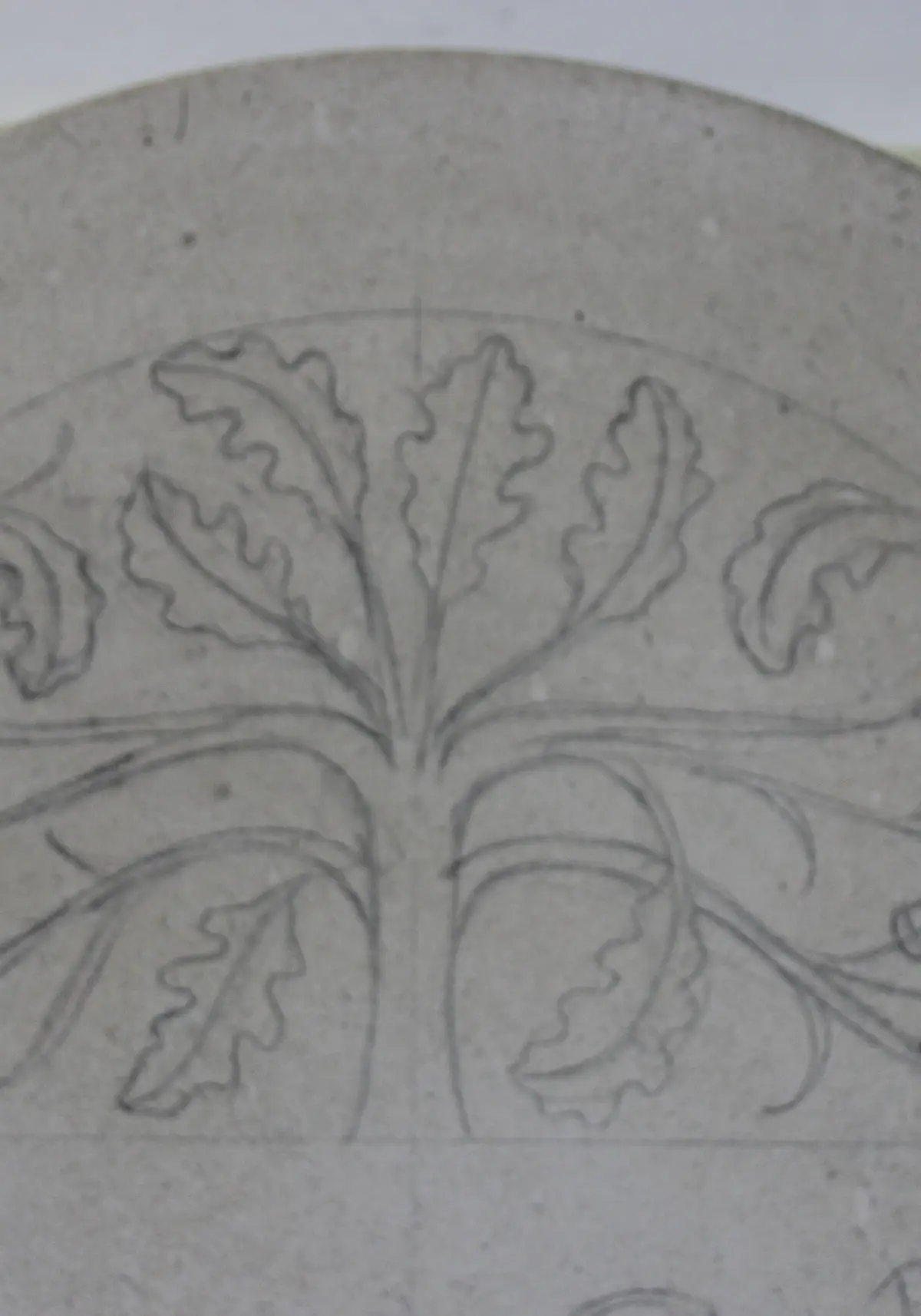
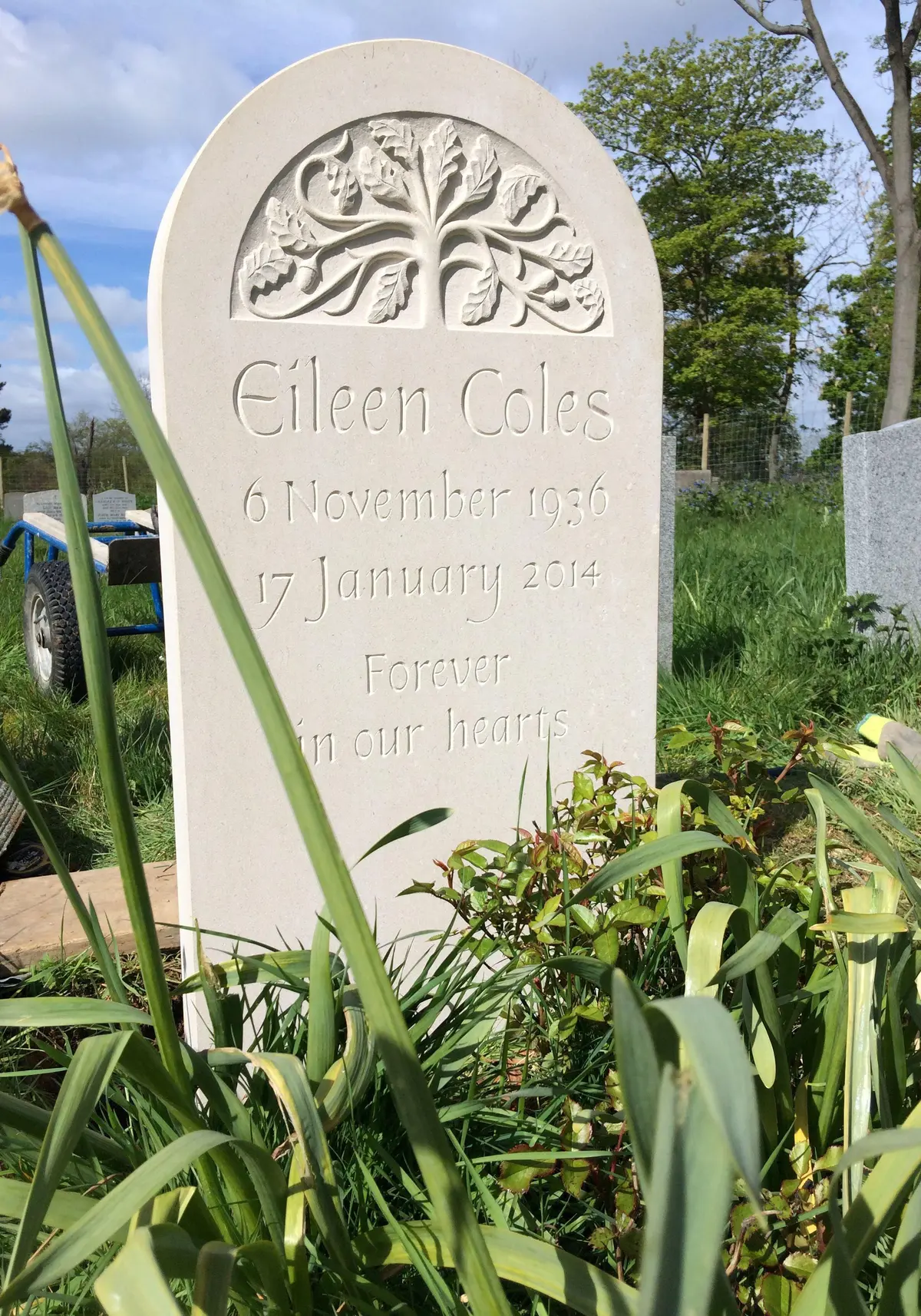
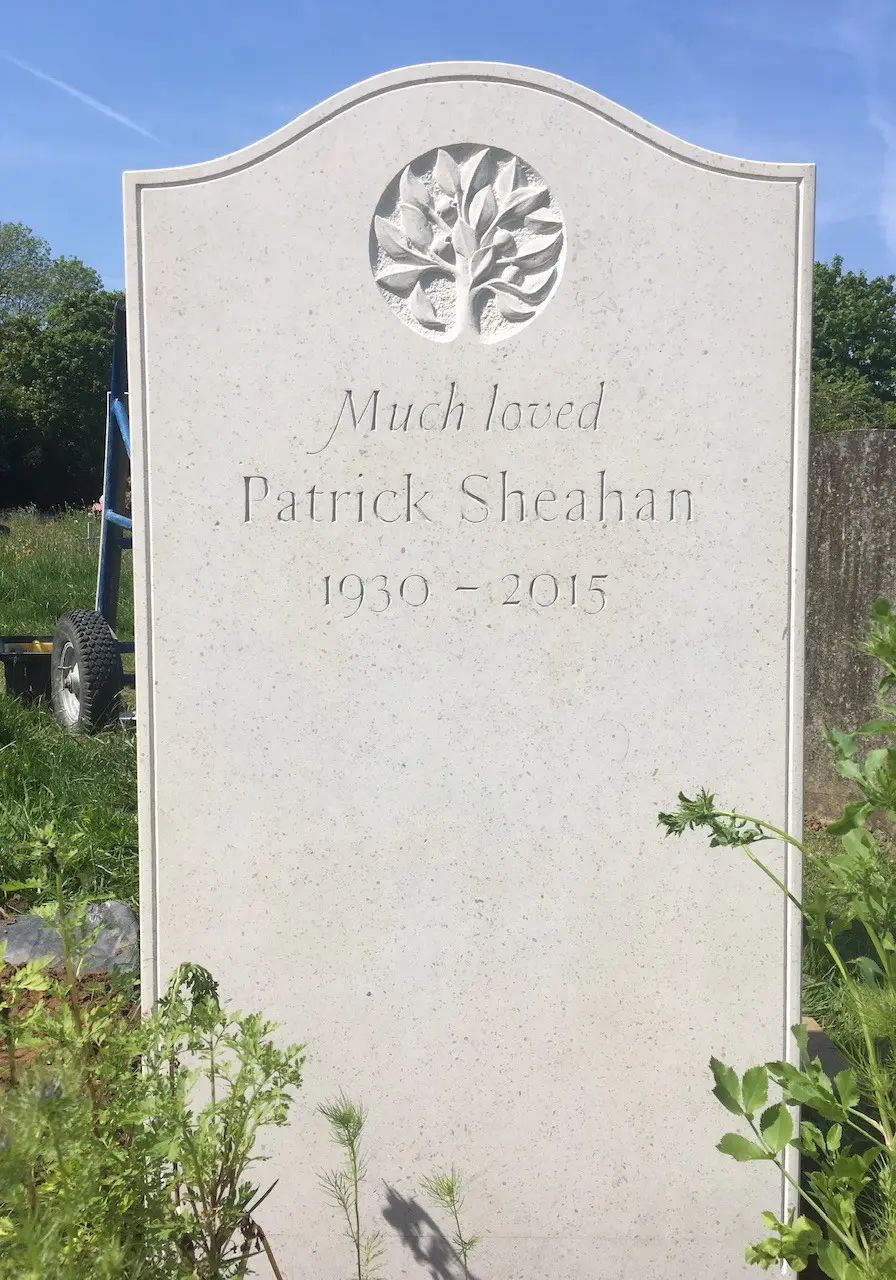

Fergus Wessel
Designer and letter-carver
Fergus created Stoneletters Studio in 2003, after training at the Kindersley Workshop. He is a member of the prestigious Master Carver's Association.


Request our free booklet today
- © 2026 Stoneletters
- Legal notice
- Privacy policy
- Disclaimer
